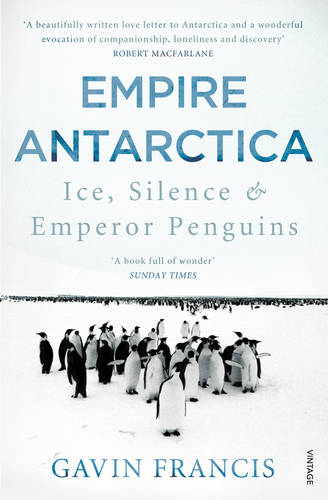
Empire Antarctica recounts the fourteen months Gavin Francis spent as the doctor at the British Halley base-camp in Antarctica.
The book describes the camp’s activities during the changing seasons, from the days of 24-hour daylight in high summer to the perpetual dark of deepest winter, then back again. I particularly liked the way Francis makes Antarctica seem like a real place, where ordinary people go to work in challenging conditions, rather than some mythological land fit only for heroes.
Francis does not, however, miss the opportunity to write about the former heroes of Antarctic exploration that inspired his visit: the likes of Robert Scott, Ernest Shackleton, Apsley Cherry-Garrard, and Edward Wilson. I was pleased to see Wilson receive due recognition, having become something of a fan of his since his name popped up during my research into the history of grouse disease for my book On the Moor. As a self-confessed Darwin groupie, I was delighted to read in Empire Antarctica that, on one reconnaissance mission during the summer of 1902–3, Scott, Shackleton and Wilson kept themselves entertained by reading aloud from On the Origin of Species. It was Wilson who inspired and took part in a dangerous three-man mission to collect eggs from the Cape Crozier emperor penguin rookery in 1911. The harrowing events of the expedition were later described by Cherry-Garrard in his classic book, The Worst Journey in the World.
Emperor penguins feature aplenty in Francis’s book too. The Halley base-camp is situated near a large penguin rookery, and Francis takes several opportunities to pay them visits.
An entertaining and educational read.
- Buy this book from Bookshop.org (UK) and help tax-paying, independent bookshops.
- Buy this book from Amazon.co.uk
- Buy this book from Amazon.com

Leave a Reply